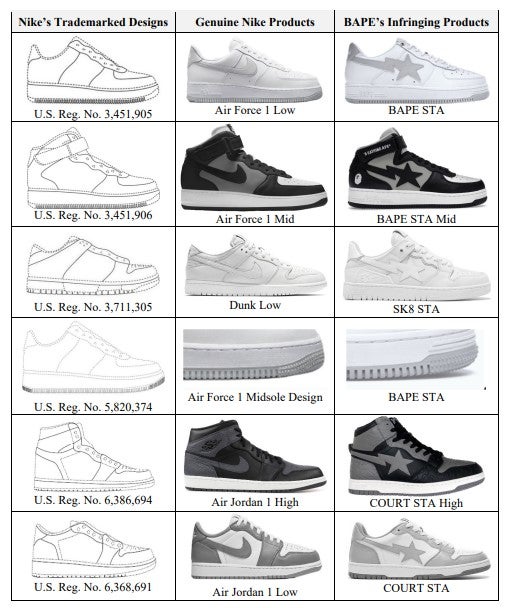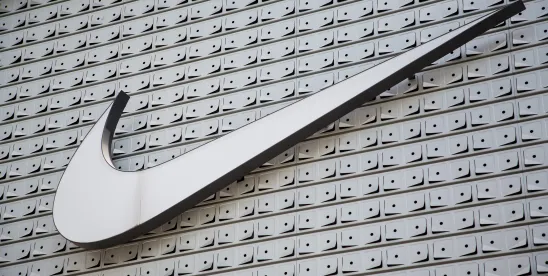Nike filed its trademark infringement suit against BAPE in early 2023, following a long history of Nike’s trademark enforcement efforts against BAPE, beginning in the early 2000s. In response to the lawsuit, BAPE filed a motion to dismiss, arguing that Nike failed to adequately identify the elements of its sneaker trade dress designs that it accused BAPE of infringing upon. The judge found the trade dress elements adequately articulated along with diagrams of the distinctive elements, and therefore denied the motion.

BAPE then attempted to cancel Nike’s trade dress registrations, alleging that Nike abandoned its rights by granting licenses to third parties without maintaining quality control over the end products. BAPE offered up Nike’s settlement with Already LLC as an example of such purported naked licensing. In 2009, Nike filed a trademark infringement lawsuit against Already, which responded by challenging the validity of Nike’s trade dress registration. According to BAPE, this resulted in Nike issuing a covenant not to sue Already, which effectively allowed Already to use Nike’s trade dress without oversight – including typical quality control standards – from Nike. BAPE argued that this amounted to a naked license and abandonment of Nike’s trade dress rights.
Companies and practitioners were hopeful that a decision on the merits in the BAPE lawsuit would provide insight into the impact of past out-of-court enforcement actions and covenants not to sue on current infringement claims. However, before the court could issue a decision, Nike and BAPE settled the lawsuit, leaving that insight for another day. Nevertheless, companies should consider the impact that their current enforcement and settlement strategies may have on their ability to successfully pursue future infringements down the road.







 />i
/>i

